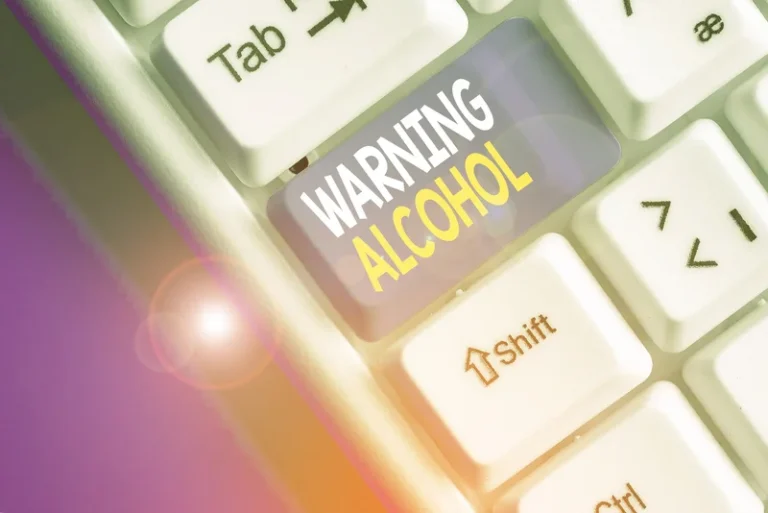The Under-Discussed Consequence of Alcohol Use Disorder: Wet Brain

Physicians rely on professional judgment and consider the patient’s medical history, physical symptoms, and cognitive impairments. Early treatment with intravenous thiamine injections and lifestyle changes, such as an improved diet and abstinence from alcohol, can increase the chances of recovery 1. Lack of thiamine can occur due to long-term, heavy use of alcohol, dietary deficiencies, eating disorders, and chemotherapy. Although this is not recommended, occasional heavy drinking will not cause wet brain. The danger is that when this kind of drinking becomes more and more frequent, it turns into an alcohol addiction.
What is “Wet Brain”? Signs & Symptoms of Wernicke-Korsakoff Syndrome
This can lead to vitamin and mineral deficiencies, including a severe thiamine deficiency. Your body needs thiamine for your brain and metabolism to function properly. If a person develops wet brain, they may experience problems with memory, coordination, and heart rate, among others. If you are struggling with a drinking problem, talk to your doctor about treatment options that can help you achieve sobriety.
Recovery Potential and Prognosis
Learn about the impact of excessive porn consumption on what does the term wet brain mean mental and physical health, relationships, and daily life. Discover effective strategies for overcoming porn addiction and reclaiming control. Support groups and mental health services can make a real difference in recovery from WKS and alcohol-related brain damage. Connecting with others can provide comfort and encouragement during challenging times. This can include making sure the person gets enough fluids and important nutrients. Doctors also help manage any alcohol withdrawal symptoms to keep them safe and comfortable.
Wernicke Korsakoff Syndrome Symptoms:

Some common signs are confusion, trouble with balance (ataxia), and problems with eye movements (ophthalmoplegia). While WKS is a serious concern, it’s important to remember it’s often preventable with proper nutrition and by addressing alcohol misuse. WKS can affect anyone, but it’s more common in older adults with a history of long-term alcohol use. Early diagnosis and treatment are key to managing symptoms and improving quality of life. If you or someone you love is showing signs of alcohol abuse, you should know that AUD is treatable. American Addiction Centers (AAC) is a leading provider of evidence-based alcohol addiction treatment and has facilities across the U.S.
What Are the Early Signs of Alcohol Dementia?

The disorder produces neurological symptoms such as memory problems. It is similar to dementia and sometimes known as alcoholic encephalopathy or alcoholic dementia. Without immediate treatment, effects can be hugely detrimental to a person’s health and wellbeing. Knowing early signs and symptoms could be the wake-up call you need to get help for your drinking problem. Long-term successful recovery from alcohol addiction is possible through a medical detox and ongoing professional support.
How is Wernicke-Korsakoff syndrome treated?
According to the National Institute on Alcohol Abuse and Alcoholism, early-stage treatment with high-dose thiamine can improve symptoms and prevent this progression. Wernicke-Korsakoff syndrome is a form of dementia that results from a deficiency in vitamin B1, primarily affecting heavy drinkers and malnourished individuals 1. Korsakoff’s syndrome, also known as Korsakoff’s psychosis, is a chronic memory disorder that often develops as a result of Wernicke’s encephalopathy. It is characterized by severe memory problems, difficulty forming new memories, and confabulation (the production of false or distorted memories).
Is Wernicke-Korsakoff syndrome the same as Wet Brain?
- To find out if your policy covers alcohol addiction rehab, click here, or fill out the form below.
- The early stage of Wernicke-Korsakoff syndrome is Wernicke’s encephalopathy.
- But healthcare providers can help relieve your symptoms with immediate treatment.
- It’s important to note that thiamine will not improve intellect or memory in wet brain patients.
- Unfortunately, many people with AUD do not disclose the full extent of their alcohol use to their primary care providers.
Over time, people might struggle with basic activities, lose track of routines, or find it challenging to make even simple decisions. Wet brain syndrome is determined by several factors, including how long a person has been drinking and how often they do it. But early detection can slow the progression of the disease and alleviate many symptoms. The long-term effects of this disease can range from difficulty with personal interactions and injuries caused by loss of coordination to coma or even death. Blood testing can provide key insights into a person’s thiamine levels and other general nutrition. Decreased red blood cell activity could be an indicator of thiamine deficiency.
- By Toketemu OhwovorioleToketemu has been multimedia storyteller for the last four years.
- Without treatment, individuals with advanced Wernicke-Korsakoff Syndrome may live only a few years.
- Ongoing treatment, therapy, and support can help people with WKS cope with these challenges and improve their overall quality of life.
- Brain imaging, such as MRI or CT scans, may be used to detect structural abnormalities in the brain.
Wernicke-Korsakoff Syndrome: Signs, Effects, and Treatment
- Find a brighter tomorrow by starting with our compassionate team of medical professionals and recovery specialists today.
- While wet brain is caused by heavy drinking, often, a person is trapped in a cycle of drinking by their addiction.
- Prolonged illness, liver disease, or conditions requiring specific medications can also heighten this risk, especially among those who may already have limited diets or poor overall health.
- The first step in treating WKS, caused by a thiamine (vitamin B1) deficiency, is getting enough thiamine into the body.
- After symptoms have worsened, individuals with Wernicke encephalopathy will need supportive care in long-term care facilities specifically designed to help people with severe dementia.
A person with wet brain syndrome often experiences memory loss and may become forgetful or seem confused and disoriented. Yes, wet brain is a form of dementia caused by alcohol misuse and alcohol use disorder. Wernicke’s encephalopathy devolves into Korsakoff’s psychosis when wet brain goes undiagnosed and untreated.

How is Wernicke-Korsakoff Syndrome Treated?

Recognizing Wet Brain early on is critical because, with timely intervention, some symptoms may be reversible. If identified in the Wernicke’s encephalopathy phase, thiamine supplementation can restore function in areas affected by the deficiency, reducing the chances of permanent brain damage. Even if a person is diagnosed with wet brain, it may still be very difficult for them to abstain from consuming alcohol. This is especially true if the person is addicted to alcohol or physically dependent on it, which can be difficult for friends and family members to accept. It’s important to remember, however, that alcohol addiction is a chronic and powerful disease and the way an alcoholic behaves won’t always make sense to loved ones.










